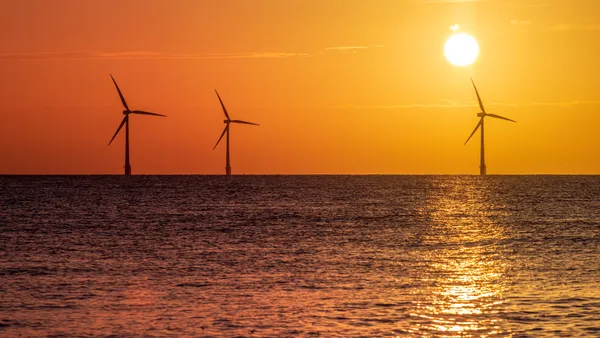Dive Brief:
- Michigan Gov. Gretchen Whitmer signed into law a suite of clean energy bills that includes supportive provisions for incinerators and landfill gas projects.
- The bill will count a mass burn combustion facility in Kent County toward clean energy targets until 2040. It also supports the use of "methane digesters" processing organic material while excluding fuels made from post-use polymers.
- The bill package had been opposed by environmental groups, who argued the inclusion of such projects perpetuated fossil fuel infrastructure and did not protect environmental justice communities.
Dive Insight:
The five-bill package passed by a slim majority in the state legislature in November, and it sets state utilities on a path to generate 100% of their electricity from “clean energy” by 2040. Utilities may generate 60% of their electricity from renewables and 40% from nuclear power, hydrogen fuel and natural gas systems that deploy carbon capture.
The bill includes a specific exemption categorizing waste incinerators in the state as a "renewable energy system" that counts toward an electricity provider’s renewables portfolio until 2040. Incinerators that qualify must have begun generating power before 2023. That means the mass burn combustion facility in Kent County, where Vicinity Energy signed a 10-year, $120 million operating contract in February, is included in the bill's goals.
Environmental groups like the Michigan Alliance for Justice in Climate and Breathe Free Detroit decried the inclusion of such facilities, saying in a letter to the governor and legislative leaders that they should “act swiftly” on climate but must protect vulnerable communities. The groups opposed the final bills and the possibility of a waste-to-energy, or WTE, plant receiving renewable energy credits.
"Breathe Free Detroit advocated against this climate bill package and we stand strongly with the folks in Kent County in their fight for clean air. The incinerator there is burning trash just like Detroit Renewable Power did here,” KT Morell, an organizer with Breathe Free Detroit, said in an emailed statement. “This sets a bad precedent for the whole state.”
Waste-to-Energy Association President Tom Hogan touted the benefits of WTE facilities in an emailed statement. He noted that “WTE facilities produce nine to fourteen times more power than a landfill using the same material,” but did not comment on the Michigan bills specifically in response to questions.
Kent County has plans for additional waste infrastructure as it joins other local governments in Michigan transitioning to cleaner energy. The county has backed a proposed anaerobic digester operated by Anaergia, although that’s now under review as the company struggles financially.
The new laws also include landfill gas collection systems and other means of collecting gas from organic waste as a clean energy resource. Electricity produced from those systems must follow “best practices for methane gas collection and control” as determined by Michigan’s Department of Environment, Great Lakes, and Energy.
Michigan’s new laws follow action from Oregon, Maryland, Minnesota and other states looking to update regulations around clean energy and incinerators.
















